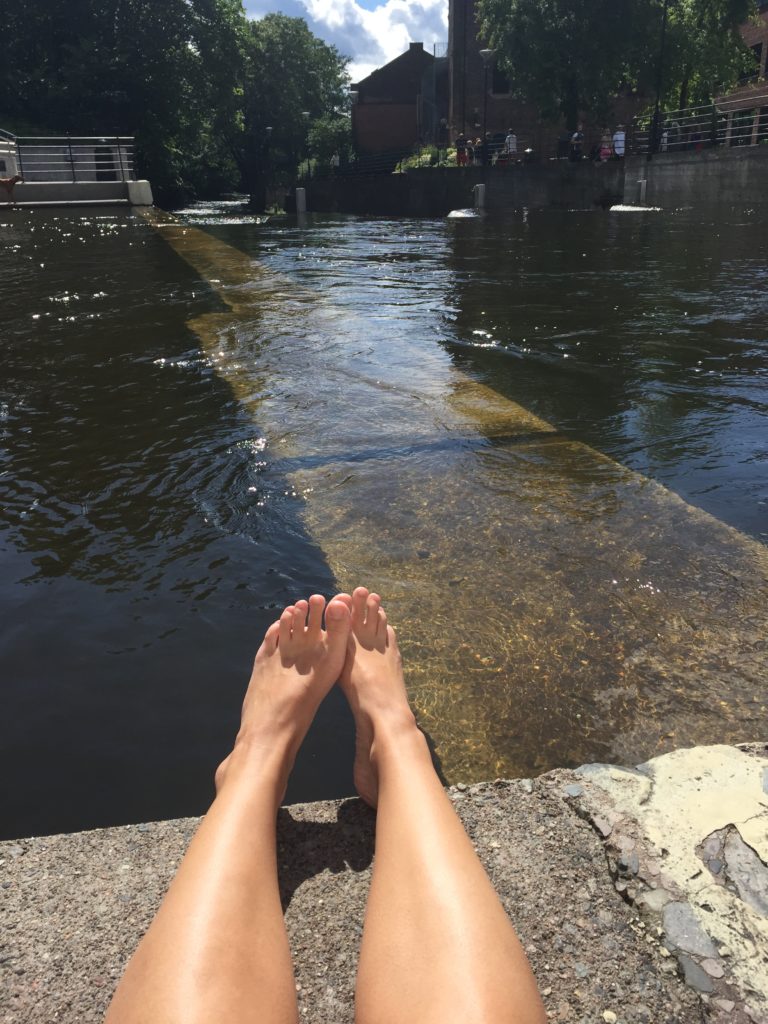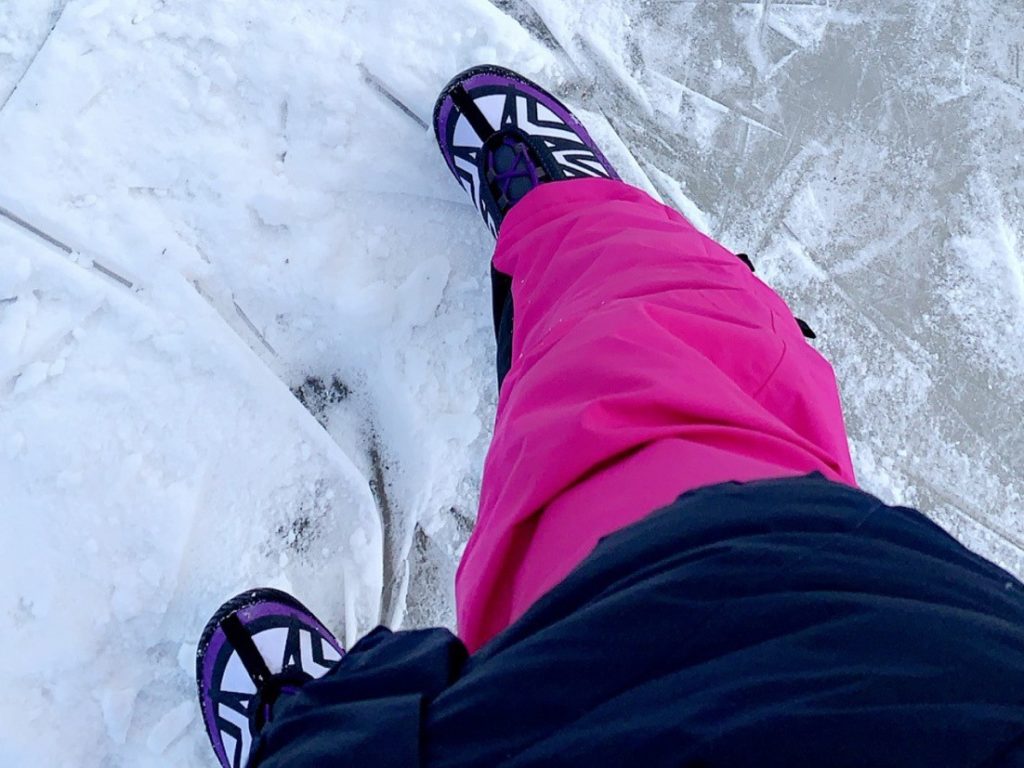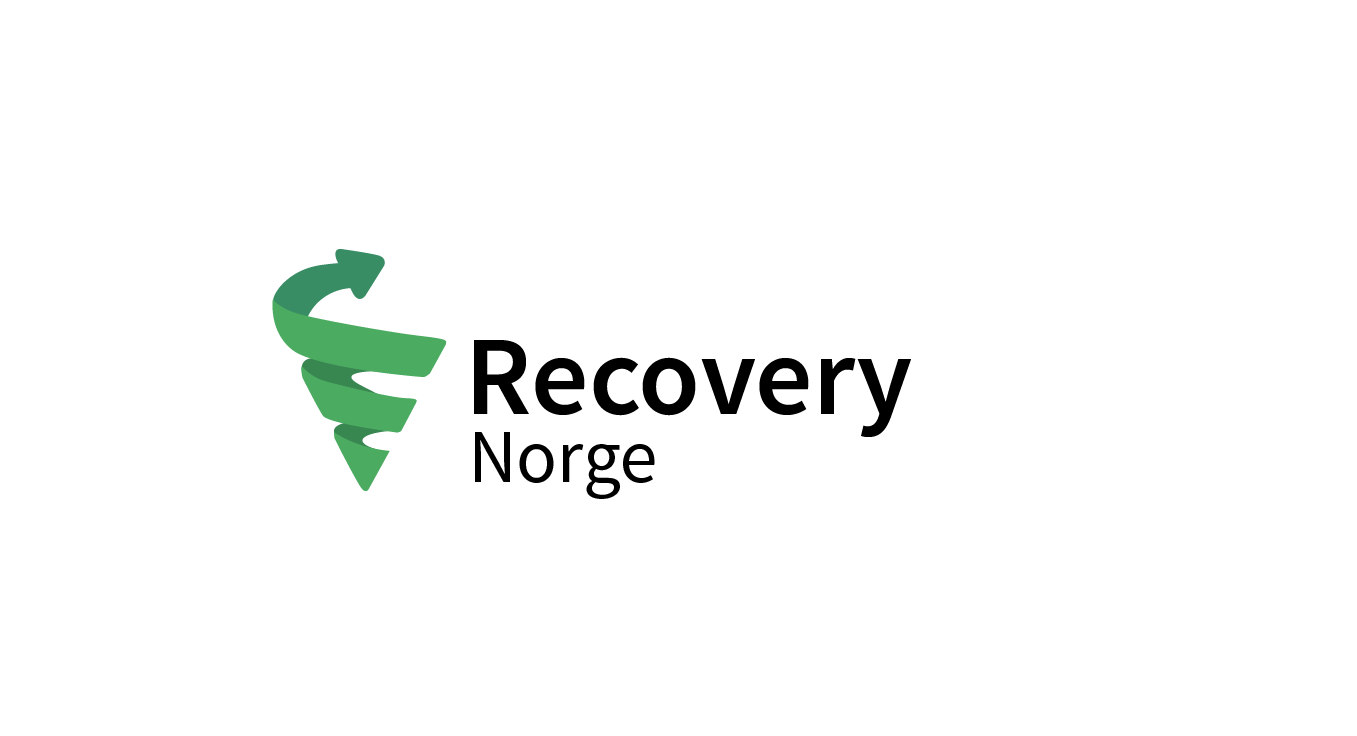Author: Woman in her 30s
My story
I’ve been a member of Recovery Norway from the start, but I’ve taken my time to write my story. Partly because I don’t want to share my full name and picture – unfortunately, not all employers will appreciate that part of my CV – but mostly because it requires me to delve into the worst period of my life. This website is all about hope. Still, someone may think: These people were not as sick as I am, they didn’t experience the same hardships. And that’s why the full story has to be told, so that you can think: If this person can do it, then so can I!

How it all started
Just before Christmas a few years back, I’d had a divorce and moved by myself. I’d just turned 30. My ex-husband and I had split custody of our three-year-old daughter. For a while, I’d been struggling with feeling sick during my period. I experienced nausea and headaches, and I felt sick and exhausted. My gynecologist recommended I start taking birth control pills to skip my period, problem solved. And so I did, during the holidays. The first week of the new year, I managed to drag myself to work for two days, but on the third, I felt so nauseous I went straight to the doctor’s. Blood samples were taken, revealing very high levels of some hormones. This could indicate problems with my pituitary gland, and I was referred for an MRI scan and put on three weeks of sick leave. My grandmother had died from a brain tumor when she was just a few years older than I was back then, so it spooked me out. On the other hand, pituitary gland problems are usually quite easily treated with medicines, and I assumed I’d have an answer and a treatment quite shortly. The doctor doubted my birth control pills had anything to do with this, but nevertheless I quit taking them.
I’m not getting better…
I live in the south-eastern part of Norway, where public health queues can be skipped if you can afford private health services. I was lucky enough to get an MRI scan quickly, and the results were normal. I returned to my GP, and now that I’d quit taking the birth control pills, my hormones were back to normal, and I should be feeling perfectly fine. On the contrary, I was still nauseous – all the time. I was on antiemetics, and still was nauseous. Additionally, my head and belly ached. All I wanted was to sit or lie without moving. Today, I’ve forgotten how painful this period was, my intolerance to light and noises, the insomnia, how I struggled to shower and eat, etc.
Unable to care for my daughter
It goes without saying that it’s hard to take care of a three-year-old when you’re unable to do more than sit in the sofa. Her father had been very helpful, and back when we assumed I would recover quickly, she stayed with him for the most part. We lived far apart, which made it difficult for me to see her, as I was unable to get to where he lived. With his help, my daughter visited me for a few hours, a few days a week. She didn’t sleep at my place. Living by myself, I struggled with all practical tasks. Kind neighbors came by with food, and I ate frozen pizzas and take-away. Because I was tested thoroughly back then, I know I didn’t suffer from malnutrition.
One doctor’s appointment after another
I can no longer remember which doctor’s appointment was up next, but there were lots of them. Everything related to hormones and nausea was checked by numerous specialist and with different types of scannings. Some examinations were uncomfortable, and they were all exhausting for a person barely capable of leaving her home. But I wanted an answer, and to recover. I wanted my daughter to live with me again! Luckily, my GP didn’t stop looking for answers, and after six months I’d been through most relevant physical examinations. I sped up the process by choosing private health services and paying the costs myself. I was unable to do much anyways, and the money I’d usually spend on travelling, shopping and other fun things, I could use to get an answer. Additionally, my GP grew impatient and approached the problem from multiple directions simultaneously, instead of waiting for each test result before moving on. As I was too sick to care for my daughter, my illness was considered quite serious. Besides, I was young – I should have been working full time!
Diagnosed with ME
After all of this, I ended up in Ullevål Hospital for a thorough examination in the ward where “unexplained” disorders go. I returned home with an ME diagnosis. At that point, I expected as much, but my question was: How do I recover? They had no answer to give. I was referred to the ME clinic at Aker Hospital, which had a two years queue period. But I lived quite close to Aker, and I called them and said I could come at short notice, if they had cancellations. That’s my advice if you’re referred somewhere; make that phone call and nag at them! Check out that they’ve actually received the referral, and tell them you can be on standby and drop by at short notice (if that’s the case).
Fired
In the midst of all these health concerns, I was fired from my job (from which I had been on sick leave from, but only for a few months). What little energy I had, I wanted to spend on my daughter or doctor’s appointments, but now I had to fight my former employer as well. Thanks to a good lawyer, I ended up with a beneficial financial settlement, but no job. At the time, I couldn’t function in a job anyways, and so I was just glad to be done with it.
But how do I recover?
Well, let’s jump right back to the story of my illness. Because my GP had sent multiple referrals at the same time, I also got an appointment with ME specialist Dag Storla. But the predicted waiting time was long, and now I had two uncertain appointments, possibly far into the future, and it was doubtful whether any of them could result in real treatment. I longed to get well, but if I really suffered from ME, which methods had they employed, those who had actually recovered?
That’s when I found the Lightning Process. By the way, I never had anything to do with the Norwegian ME Association. In the beginning, I didn’t really think I had ME, as I was convinced I suffered from something “more physical” (something hormonally, most likely), but then, when nothing was found, the ME Association didn’t have anything to offer me anyways, as they could not point to a treatment.
Nevertheless, I was skeptical to LP. Having been educated in the fields of psychology and biology, I have no love for alternative therapists who profit from the placebo effect. But all by coincidence, I came in contact with an acquaintance of an LP-practitioner, who spoke well of her. I also had knowledge of another person who had taken the LP course, and in this modern world, she was just a Facebook message away. She highly recommended the course. Nevertheless, my GP was deciding factor. Normally, he’s very much against anything alternative, but he thought this might be a good idea. The price was no more than a trip to the Canaries, and as I clearly wasn’t going there anytime soon, I signed up.
Dandelion child
Before I got to the LP course, I actually got an appointment with Storla, and I filled out a long form and ended up with yet another diagnosis of ME. Parts of the form dealt with past events in my life. In addition to having been through a divorce that involved a small child, my childhood was also quite unusual. I moved in with foster parents before I started school, and my biological parents struggled with mental health issues and alcoholism. These factors typically increase the likelihood of suffering from health problems as an adult.
At that time, I also got an appointment at the DPS (District Psychiatric Center). I wanted to try everything that could help me, and they considered my situation with not being able to care for my child, serious enough in itself that I should have someone to talk with. There I met a great doctor, and we talked a bit about childhood experiences. Must childhood trauma and a biological predisposition for certain health problem always result in a troubled life when you grow up? She told me that a significant proportion, those often called “dandelion children”, will do well later in life, regardless. There was no reason to think I would not be among them.
A treatment for ME?
After my appointment with Storla, I now had two independent ME diagnosis. I wasn’t that concerned about that – what I wanted to know, was what kind of treatment he’d recommend. And he actually had a couple of suggestions, among them a health retreat. The best one was obviously very expensive and promised improvement – but not full recovery. This happened right before the LP-course, and so I decided to go through with that first.
I can add that right after the LP course I received a phone call from the ME clinic at Aker Hospital. My “nagging” had worked, and they offered me a short notice appointment. I asked what kind of treatment they had to offer and if they had anything that could lead to my full recovery. They answered vaguely: “Well, no, we do have some light therapy?” That didn’t sound very convincing to me, and I politely turned down the appointment (I didn’t need a third ME diagnosis).
The LP course
Now, let’s jump right into the LP course. As it turned out, much of it was familiar to me because of my education, like that the distinction between “mental” and “physical” is pure nonsense. Everything you feel and experience is connected to physical processes in your body. For example, feeling happiness causes physical changes – not to mention falling in love! Viewing it all as a whole, there is so much you can change and train your own body to do (including unlearning habits, like the need to rest all the time).
I took the LP course almost exactly one year after falling ill, and that was my turning point. Walking out after the course, I felt completely different. I no longer considered myself ill. Even though I wasn’t able to turn it all around from one day to the next, I gradually reclaimed my life. When you’ve spent a whole year almost entirely on the couch or in bed, it will take a while to fully reach normality again. Having rested for a whole year, you won’t feel more rested if you continue to rest. I had to train to get up and in shape, and LP provided me with the tools necessary to do so.
I’m recovered!

I remember taking my daughter ice-skating one week after the LP course. It would still take some time before she could live with me, but I was rehearsing for it! I still remember the feeling of freedom when I, using public transport, went out for a beer with a friend in a noisy bar. Less than six months after the LP course, my daughter lived with me every other week, and we’d been together on summer holiday.
Back to work
When I signed up for the LP course, all I wanted was to get well enough so that my daughter could be with me. Being able to work wasn’t really that important. But after making such rapid progress, I missed being able to participate on par with others. Since I’d lost my job, I didn’t have the opportunity to start working part-time, but chose to wait until I was ready for full-time work. Instead, I did volunteer work once a week, which gave me something meaningful to do, besides making me confident I could handle having responsibility again. One year after the LP course, I was working full time. And I still do (at a minimum…), and I can do everything I want. I have all but forgotten that I used to be ill. And I’ve grown better at doing the things I want to do, and turning down what I don’t.
Grateful
I am infinitely grateful for the Norwegian health services which, nevertheless, provided me with an incredible amount of help and examinations, for my GP and for the LP-practitioners, who is working to ensure that everyone can live the life they love! In addition to my ex-husband, neighbors, friends and family who all were there for me. It’s also fantastic to see everyone in Recovery Norway working to make more people experience the same as I did: Full recovery!
